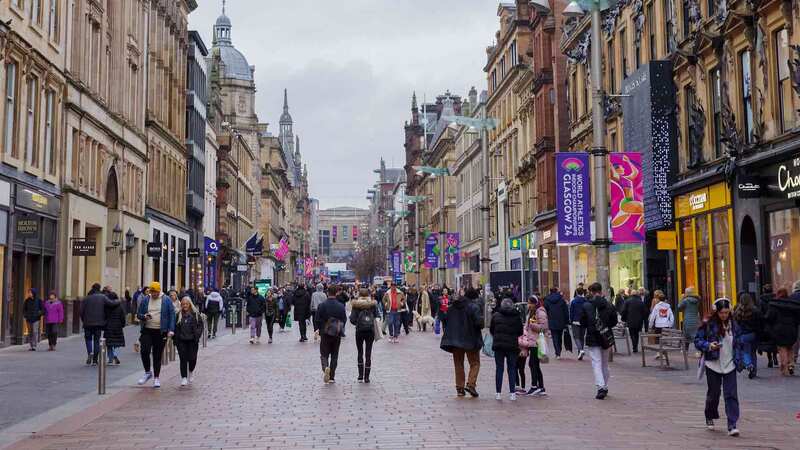You are viewing your 1 free article this month. Login to read more articles.
Debate on deep discounting and an NBA intensifies
Waterstones m.d. James Daunt, authors Cathy Cassidy and Peter James, and Lizzy Kremer of David Higham Associates are among those contributing to the intensifying debate on steep discounts on printed books and a possible reintroduction of the Net Book Agreement.
The debate was sparked by blogs from independent bookseller Tamsin Rosewell, and an interview with author Philip Pullman in the Sunday Times which raised the possibility of a return to fixed book prices (full statement since made available on the author's website). Pullman said the belief that the market “knows best” and is “something natural, like gravity, which we can do nothing to alter” was “insane, inhumane, perverted”.
“Of course we can alter the way the market works. It’s a human construction,” Pullman said, adding: "Whether we can bring it [the Net Book Agreement, dissolved in 1997] back, or whether we can find a new settlement that takes account of the existence of online bookselling, which the NBA didn’t have to cope with, is a discussion that’s urgently needed."
Waterstones' Daunt told The Bookseller that the reintroduction of the NBA “in some form or other” would be a “fine thing” as long as it was part of a “general political policy that sensibly considered the whole world of books and learning,” including libraries.
But he added that publishers inflating the r.r.ps of titles was also a factor in deep discounting. “On the narrow subject of unfettered discounting, this can be very damaging, especially to the perception of worth for individual titles,” Daunt said. “It is driven, however, by a number of factors beyond the competitive behaviours of the retail behemoths. Inflated r.r.ps provoke discounting, for example, and these are controlled after all by publishers and authors.”
Lizzy Kremer, vice president of the Association of Authors’ Agents, agreed publishers price books knowing they are going to be discounted.
“When booksellers say that steep discounting is ‘conveying to customers that a hardback isn’t worth £20’ they are of course right,” Kremer said. “But the truth is that publishers don't believe all hardbacks are worth £20 either. They price them at these levels in order to facilitate steep discounting and to allow the customer to perceive that their interests are being protected by good pricing. This is what the Amazon selling environment has required of them.”
However, she said instead “what would be terrific” would be for publishers to produce more special editions of big books published exclusively for independent bookshops “priced at the right level for those sellers and offering content exclusive to them for their customers”.
The downside of this would be that different ISBNs would mean splitting a big sale between editions and potentially jeopardising an author's chances of retaining a number one chart position, she said, “but it would be worth it”.
Juliet Mabey, publisher at Oneworld, said that inflated r.r.p.s were more likely to be a response to the substantial increase in discounts demanded by online booksellers and the supermarkets and chains to protect both author and publisher incomes. “The price of books seems relatively cheap compared to cinema tickets and greetings cards, so still represents very good value, in the main,” she said, adding: “I must say I would be keen to see the net book agreement reintroduced in some form, primarily to ensure the protection of high-street bookshops, who are undoubtedly a cultural asset, particularly in an age of dwindling libraries.”
On the flip side, children’s author Cathy Cassidy raised the point that cheaper books made them more accessible to a greater number of people. “As a children's author I want nothing more than to put books into the hands of children, so it feels counter intuitive to argue against the discounts.” However, she said she thought steep discounting had got out of hand. “We're on a slippery slope here; damage is being done,” she said. “Without the indie bookstores and libraries, without the books that will never be bestseller but which add so much to the world all the same, we lose out hugely. The price of extreme discounting is way too high.”
Crime author Peter James believes similarly that the collapse of the NBA has helped the book world to drop its “elitist” image and encourage people who wouldn’t otherwise read to buy a book, from, say, a supermarket. “I think the abolishment (of the NBA) came at just the right time for the publishing industry and for authors, entering the new paradigm of the digital-lead world,” he said. “At a time when reading was in decline, books suddenly became not just much more affordable, but their elitist image disappeared overnight when Tesco, followed by the other supermarkets began to stack them along with groceries and ironmongery and everything else.”
However he added there had “enormous winners and enormous losers” from the move. “The real tragedy is the loss of so many wonderful independent booksellers, and having so many high streets around the UK devoid of any dedicated bookshop at all,” he said.
James also raised the point that cheaper books could have helped to reduce piracy in the UK market. “I also believe, ironically, it is discounting both on print and on e-books that has kept the menace of piracy at bay in the UK,” he said. “My Russian publishers told me, just four years ago, that 98% of e-books in their country were pirated, and they hoped Amazon would get a foothold and beat them.”
While others might welcome some regulation around book pricing, most don’t believe bringing back the NBA is realistic. But an end to very deep discounting on brand new titles would be broadly welcomed by those The Bookseller spoke to. Mahmoud Aladham, shop manager at Alef Books, commented: “For some books, the retail price on Amazon is actually cheaper than the trade discounted price we're getting from some publishers, so I agree extremely large discounts of 50-80% should not be allowed, at all.”
Nik Gorecki, co-manager at Housmans and founder of the Alliance of Radical Booksellers, said that he believes fixed book pricing actually “kept indies afloat”.
“The statistics seem to reflect that: when the agreement broke down it marks a moment where independents began closing, a trend that continues to this day,” he said. “My understanding is that France and Germany have both held on to this agreement and the governments there recognise its importance. Personally I think it should be brought back as it was. The proposal to stop discounts above 50% would definitely be a step in the right direction.”
Madeleine Milburn, literary agent and director of the Madeleine Milburn literary agency, said she would "welcome" a return to the NBA, but admitted it would be "very difficult" to reintroduce into our culture 20 years on. "I think it’s outrageous that books are discounted from day one, particularly brand names where customers would pay full price," she said. "The book market is much healthier in places like Germany where they have fixed pricing."
Alessandro Gallenzi founder of Alma Books, agreed that there was “no prospect” for the return of the fixed price in this country, “free competition is holy in this country, for political reasons.” However he added: “I believe, though, that if it was already abolished and reintroduced once, we should talk about reintroducing it today, considering that things have changed drastically since 1997 and that the pernicious effects of its demise have become apparent.”
The emergence of Amazon, the print-on-demand revolution and the appearance on the market of e-books, which is redefining the relationship between authors and publishers and putting under pressure the traditional supply chain, made the market more complex than it was 20 years ago, he said.



















